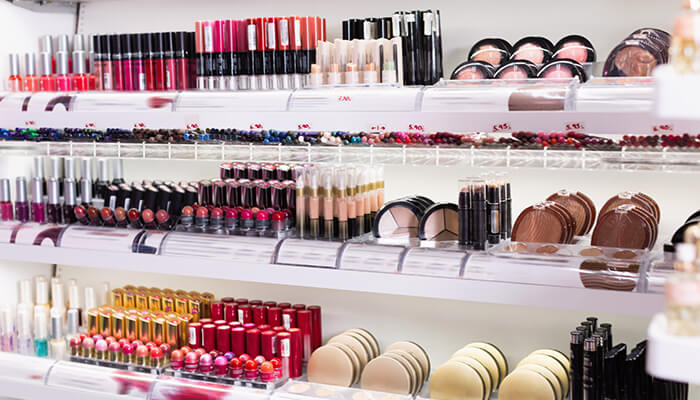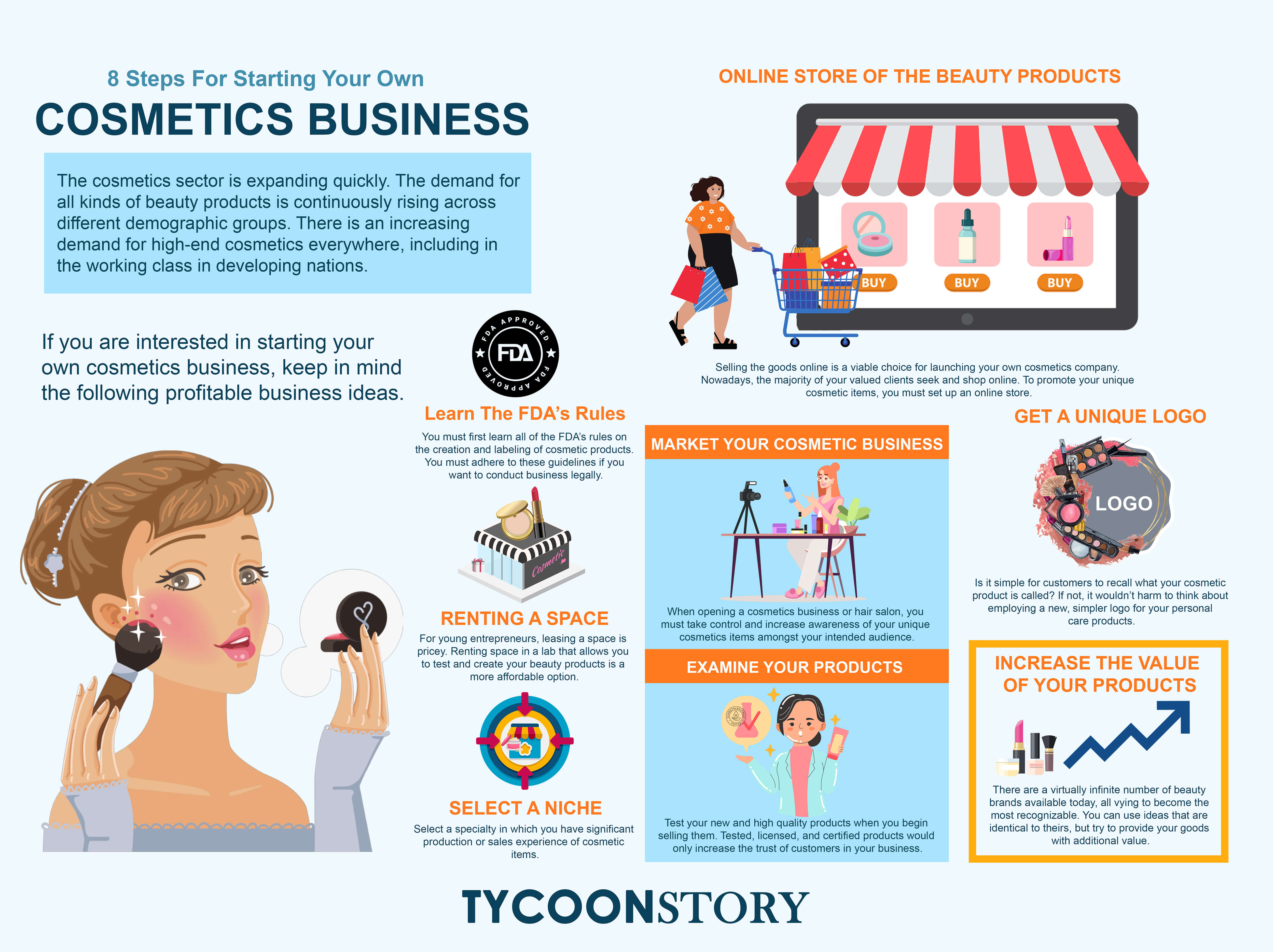The cosmetics sector is expanding quickly. The demand for all kinds of beauty products is continuously rising across different demographic groups. There is an increasing demand for high-end cosmetics everywhere, including in the working class in developing nations. The increased demand would mean that suppliers would have a great opportunity to profit. If you are interested in starting your own cosmetics business, keep in mind the following profitable business ideas:. Here we go:
1. Learn The FDA’s Rules for Cosmetics Product
You must first learn all of the FDA’s rules on the creation and labeling of cosmetic products. It must adhere to these guidelines if you want to conduct business legally.
You must be well-versed in the laws governing the production and sale of cosmetics. You can avoid any unpleasant legal difficulties by doing this. On the United States Food and Drug Administration website, under the heading “Cosmetics,” you can find legal data. So, learn everything about the regulations and rules before you start establishing a small cosmetic business.
2. Renting a Space for Starting the Cosmetics Business
First of all, you can launch your cosmetics company from your house. Leasing a space is an additional choice. For young entrepreneurs, leasing a space is pricey. Renting space in a lab that allows you to test and create your beauty products is a more affordable option. Look for a place that will cost you little to start your firm.
3. Select A Niche
Select a specialty in which you have significant production or sales experience of cosmetic items. For instance, you know about the marketing of lip care items, mineral cosmetics, or makeup with special effects.
To properly plan your company, focus on the field of cosmetic products that you are comfortable with. Specify your area of expertise or interest in makeup.
4. Online Store of Beauty Products
Selling the goods online is a viable choice for launching your own cosmetics company. Nowadays, the majority of your valued clients seek and shop online. To promote your unique cosmetic items, you must set up an online store.
Selling your products via online systems demonstrates your dedication to offering competitive prices if you want to entice a wider customer base, as you attempt to offer value and affordability to buyers looking for the best deals on the items you have available for purchase.
5. Market Your Cosmetics Business
When setting up a cosmetics business or hair salon, it is important to take charge and put in place strategies to enhance the visibility and reputation of your distinctive range of cosmetics products within the market section you’re concentrating on. Taking proactive steps to promote your brand and hook up with your preferred shoppers will appreciably contribute to the achievement and increase of your beauty-related agency.
To maximize exposure to your business’s products, it is crucial to explore diverse locations within the city where your target clients frequent. Engaging with local beauty salons can provide a terrific platform for selling your offerings. Consider collaborating with those salons to host product tutorials and evaluations for customers, highlighting the unique benefits and functions of your products. This approach can help build brand awareness and generate interest in your business inside the community.
6. Examine Your Products
When starting to promote your new and high-quality products, it is critical to thoroughly test them to make sure they are excellent and reliable. Products that have been rigorously examined, licensed, and certified will instill a feeling of consideration and confidence in your customers toward your commercial enterprise, ultimately boosting your recognition and credibility.
To further validate the quality of your services, consider distributing complimentary samples to your immediate network, such as neighbors, family members, and close friends, as their comments can provide valuable insights and testimonials that could appeal to more buyers.
It is commonly more advantageous to perform a laboratory test on your products to expect the responses of both the wider audience and your unique marketplace section. By doing so, you could gauge capacity reactions and preferences, enabling you to make informed decisions that align with the needs and expectancies of your consumers.
7. Get a Unique Logo
In analyzing the logos inside the cosmetics industry, interest is drawn now not only to their shape, color, size, and style but also to how they measure up to the ones of competing brands. Comparisons among those visible elements may additionally serve to focus on differences or similarities that affect patron belief and brand identification. To navigate this complexity efficiently, recommendations from a representative with information in design and marketing can offer precious insights and techniques for optimizing your very own brand’s visual attraction and impact.
8. Increase the Value of Your Cosmetics Products
In the vast landscape of beauty brands present today, each striving to establish itself as the most memorable, the options seem virtually endless. To enhance your own brand’s uniqueness and visibility, it is crucial to engage in in-depth market research focused on observing and analyzing your key competitors. By gaining valuable insights through this process, you can refine your strategies and ideas, paving the way for successful differentiation and recognition in the competitive beauty industry.
When incorporating concepts similar to theirs, strive to enhance your products by offering extra features or benefits. Elevating the value of your goods through innovation and added functionalities can differentiate your offerings in the market and attract more customers to your brand.
Conclusion
By implementing effective advertising and marketing techniques and offering a range of licensed beauty products, your business stands to significantly increase its profitability and gain a higher level of financial success. This mixture of techniques and products will assist you in maximizing your revenue ability and strengthening your position inside the market.




